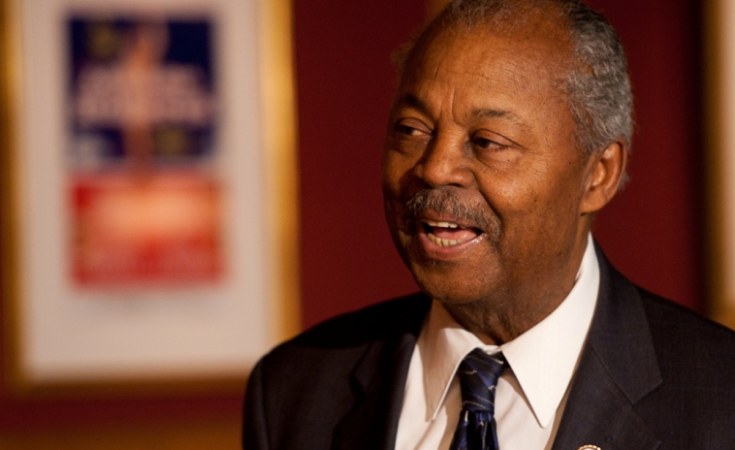In the Africa-focused community there is an enormous crater when Donald Payne once stood. He loomed larger than Mount Rushmore as the go-to person for any and everything Africa-related.
I first met him in 1989 when he was new to Congress and I was the incoming president of the then-African-American Institute (AAI). We got together to monitor early problems in Samuel K. Doe's Liberia and have worked together ever since: Liberia, Nigeria, Rwanda, Darfur, Ethiopia-Eritrea conflict, Sudan, Somaliland and recently Côte d'Ivoire—you name it and Don was deeply involved. He was substantively engaged, knew and was trusted by leaders across the continent and was a good negotiator, viewed as objective by all sides. A lifelong community organizer, Don appreciated the role of civil society in addressing crises (i.e. Liberia) and was the best partner an NGO could have in dealing with contentious issues (e.g. Sudan).
Don was a champion of democracy in practical terms. At an AAI conference when West African candidates were grousing about the system and the indignity of losing, with his classic deadpan humor Don observed that he ran for Congress three times before he won.
When he won, Don became a textbook model legislator. He loved New Jersey and his home town, a love that was deeply reciprocated by his constituents. He used that mutual affection to expand domestic support for African issues, turning his New Jersey voters into strong advocates for the continent. Nowhere was this more evident that at his legendary boat ride on the Sunday morning of the Congressional Black Caucus Legislative Weekend where state legislators, African friends and diplomats, teachers, private sector leaders, Payne supporters and family talked issues and then--led by Donald--did the electric slide.
The genius of Donald Payne was that all were welcome—on the boat ride and in his life. Race, creed, ideology were not important. Commitment to the issues of education, humanitarian relief, equal justice under law, expanding opportunity and rewarding merit in the U.S. and abroad was important. Don was steadfast, motivational, loyal, but above all a man of integrity. He could talk to African leaders about corruption because he was known as Mr. Clean. He could work with movie stars and other celebrities because he was confident in his knowledge. Commitment coupled with vision and humility coupled with expertise made him a great leader and a great friend.
The crater Don leaves in the African community is huge. He would smile if he were to see the crater filled with a glorious international rainbow of men and women committed to social justice and human betterment worldwide: that rainbow would be a fitting legacy. It is our job to make it happen.
Vivian Lowery Derryck
The Bridges Institute
Washington, DC
March 7, 2012


